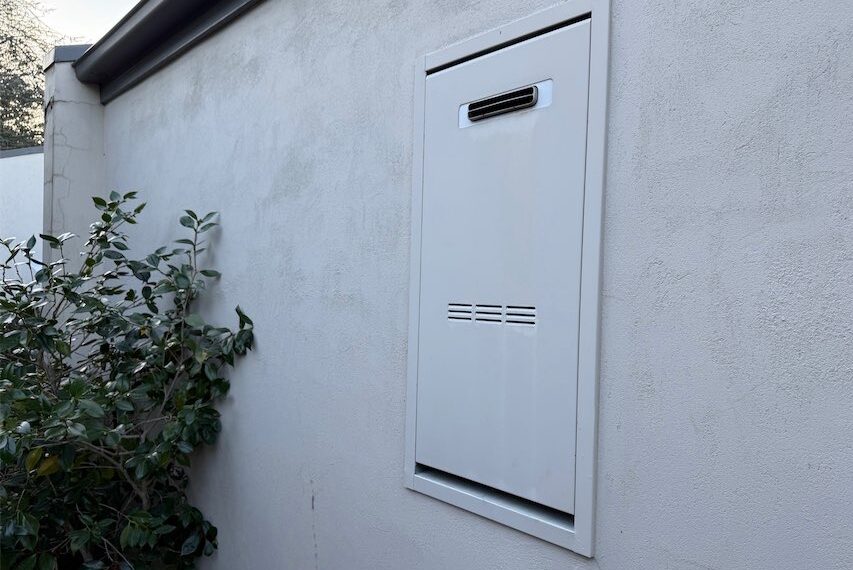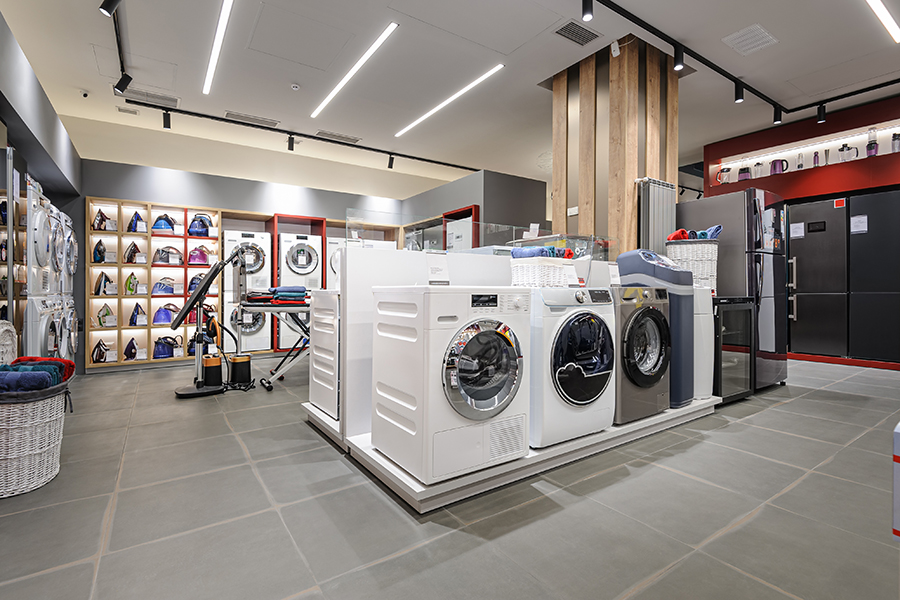
The tankless water heater does away with the need for the bulk of the familiar storage tank. Also known as a continuous flow or instantaneous hot water system, its compact design is just one of the many benefits it offers, says DAVID ELLINGSEN.
Looking to switch up how you receive hot water to your home? If all you’ve ever known is the traditional storage hot water tank system, you may have occasionally found yourself in the unenviable position of running out of hot water and having to wait hours for it to heat up again.
Thankfully, the tankless water heater does away with the need for and often excessive bulk of the familiar storage tank. Also known as a continuous flow or instantaneous hot water system, its compact design is just one of the many benefits it offers.
But is it the right choice for your property?
Understanding how tankless water heaters work to provide hot water, not to mention the many advantages they provide, will help you determine if it is indeed the right choice for your home.
How tankless water heaters heat water
So, how do tankless water heaters work?
Essentially, they differ from storage hot water systems by heating cold water on demand, as you need it, rather than storing heated water in a tank. When you turn the hot tap on in the shower or at the kitchen sink, it initially releases cold water that flows through a powerful heat exchanger. This exchanger quickly heats the water with either a gas burner or an electric heating element, and provides you with continuous hot water that doesn’t run out.
As your tankless water heater only heats water when you need it, the overall process drastically minimises standby heat loss. This effectively makes this type of hot water system more efficient than the more familiar storage-based water heater.
Be aware of the flow rate limit!
It is important to understand, however, that while tankless water heaters provide continuous hot water that a storage hot water system cannot offer, it does come with a trade-off. And that trade-off is the flow rate limit.
You may have even experienced this yourself when people in the house use multiple hot water taps at the same time. The hot water system cannot then meet demand and reduces the volume and pressure of water it releases from each tap. Often significantly, too. We recommend following the advice of Metropolitan Hot Water, which suggests “investing in a high-capacity model or multiple units” to accommodate household hot water needs.
How you’ll benefit from a tankless water heater
Upgrading to a tankless water heater offers many worthwhile advantages that improve efficiency, comfort and convenience. Key benefits include the following:
- Energy efficiency – According to the Australian Government’s YourHome website, storage hot water systems waste about 30% of the energy used to heat water through heat loss from the tank and pipework. Tankless water heaters don’t have this issue, which generally makes them a more efficient choice for the home.
- Space-saving design – The lack of a storage tank means continuous flow systems boast a compact and wall-mountable design. For many homes with limited space, it makes for a smart choice.
- Longer lifespan – As the highly-regarded consumer website Canstar Blue suggests, a well-maintained tankless water heater typically lasts 20 years or more. This is compared to 10-15 years for traditional storage water heaters.
- Lower utility bills – Since tankless water heaters heat water only when you need it, they can significantly reduce energy costs over time.
Of course, there is also the fact that tankless, continuous-flow hot water systems provide water when you need it. There’s no need to wait hours for a depleted storage tank to reheat your water before you can step into the shower again!
Why professional installation matters
As with any hot water system, installing a tankless water heater is not a DIY project. By law, you’re required to use a licensed plumber.
For gas-powered hot water systems, they need a plumber to install larger gas lines and proper venting systems for efficient operation and effective carbon monoxide buildup prevention. Though less common than their gas counterparts, electric tankless water heaters may require higher voltage capacity or dedicated circuits to support their heating elements.
You’ll also need a licensed plumber to guarantee proper water flow and make necessary pressure adjustments, as improper sizing can lead to fluctuating temperatures or insufficient flow rates. They will also make sure the installation meets local building codes and safety standards, which is crucial for warranty validity and home resale value.
Aside from the legal requirements, in the end, professional installation guarantees safety, compliance with regulations, and optimal system performance.
Points to consider before making the switch
Though tankless water heaters certainly boast many worthwhile benefits, they may not be suitable for every home. Consider the following before upgrading your existing hot water system:
- Upfront cost: Tankless continuous flow hot water systems are generally more expensive to purchase than traditional storage systems. And that’s without factoring in installation.
- Installation requirements: Older properties may need upgrades to existing plumbing, electrical or gas line systems before installation, which further bumps up installation costs. Before you buy a tankless water heater, consult with a plumber to make sure your home is tankless water heater-ready.
- Household water usage needs: Make sure you choose a system that will accommodate the hot water needs of the entire household. The general rule of thumb is that a standard two-bathroom house will need a system with a 22-24 litre per minute flow rate.
- Regular maintenance obligations: If you live in an area known for hard water, be prepared for consistent maintenance of your tankless water heater. Top job on the to-do list? Yearly descaling to prevent mineral build-up. Thankfully, some models come with built-in sensors that will tell you when your hot water system is due for maintenance.
It’s also worth noting that in very cold climates, incoming water temperatures can be very low and require more energy to heat water. Some tankless models have freeze protection, but pipes still need to be properly insulated.
Is a tankless water heater worth it?
Installing or upgrading to a tankless water heater can significantly improve the energy efficiency and comfort of your property, and even reduce long-term costs while doing so. These systems provide continuous hot water, lower energy bills and a longer lifespan, making them a smart investment for many homeowners.
But potential buyers should factor in higher upfront cost, installation complexities and maintenance requirements before making a decision. Talk to a licensed plumber to make sure the unit is properly sized and installed for optimal performance.
With careful consideration, a tankless water heater can be a great addition to your home, increasing efficiency and convenience while providing long-term savings.
David Ellingsen is the CEO of Plumbing and Gas Pty Ltd.
Who can be trusted?
In a world of spin and confusion, there’s never been a more important time to support independent journalism in Canberra.
If you trust our work online and want to enforce the power of independent voices, I invite you to make a small contribution.
Every dollar of support is invested back into our journalism to help keep citynews.com.au strong and free.
Thank you,
Ian Meikle, editor








Leave a Reply